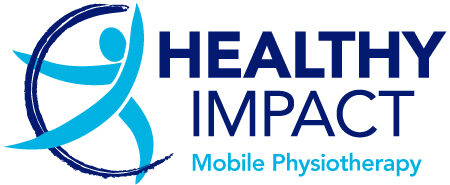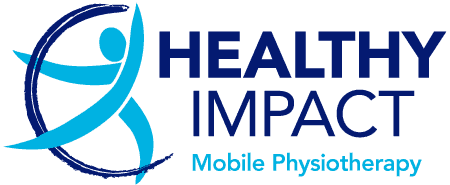Functional Strength Rehabilitation
Functional Strength
Functional strength rehabilitation involves identifying everyday movements patients are having trouble with and developing a targeted exercise program to improve mobility and to maintain independence. This can include daily work tasks and occasional recreational activities.
If you have any other questions please feel free to check out our “FAQ” page or contact us here at Healthy Impact
Difficulties or low confidence in:
You may be having difficulty / not confident with completing some of the following activities.
- Moving around in bed
- Getting dressed and undressed
- Getting on or off the floor
- Getting up and down from a chair/couch/toilet
- Walking at pace, making directional changes or avoiding pedestrians
Other possible difficulties
- Steps and stairs
- Picking things up off the floor, getting things out of low cupboards and kneeling to garden.
- Lifting shopping bags or boxes
- Strength and fitness levels to keep up with the kids/grandkids
Read our FAQ page here or if you have a question, contact Scott on
0402 221 397 (9am – 5pm Mon – Fri)
healthyimpactqld@gmail.com (Anytime)
A functional strength training program
A functional training program should focus on enhancing the coordination between muscle groups and the nervous system with the end goal of improving performance with day-to-day activities. For a functional strength training program to transfer to real-life activities, it is important that the program include these factors:
- Strengthens the muscles involved in real-life activity. Strengthening should involve isolating muscles that demonstrate poor strength or movement pattern control. Muscles must have sufficient strength in multiple directions and at speed with different variations before your body will trust them and have confidence during real-life activities.
- Part practice of the activity with increasing variability and speed.
Full activity practice to ensure control and coordination of the joints and whole movement.
Real life activity practice with increased movement, speed and environment variability.
Functional movement deficiencies cause falls and injuries in adults. Poor functional strength has a direct relationship with independence and quality of life.
Humans are great at compensating or cheating. We will often avoid or modify a task because we are having trouble with or cannot do an activity without difficulty. This results in reduced independence at home and reduced participation in the community. Lack of independence and social participation negatively affects our fitness, mobility. strength, social and communication skills, cognition, and life expectancy.
Physiotherapists are movement expert’s, we analyse movements all day, every day. We can screen for functional movement issues with our eyes, there is no need to tell us. You may not even realise there is a problem. At healthy impact we aim to identify functional movement problems early and develop independent exercises programs for you. This reduces the ongoing cost and gives you control over your rehabilitation.







